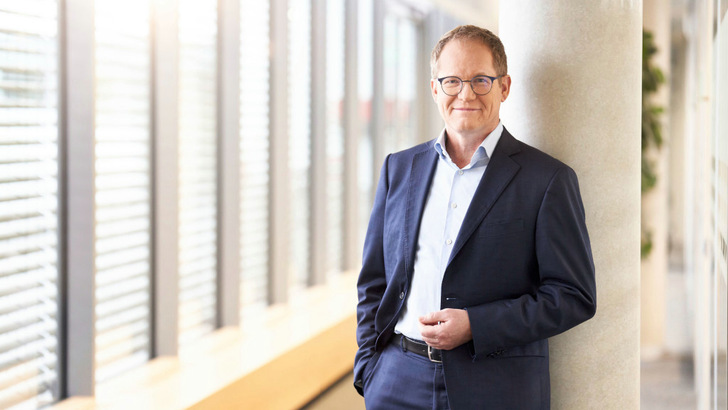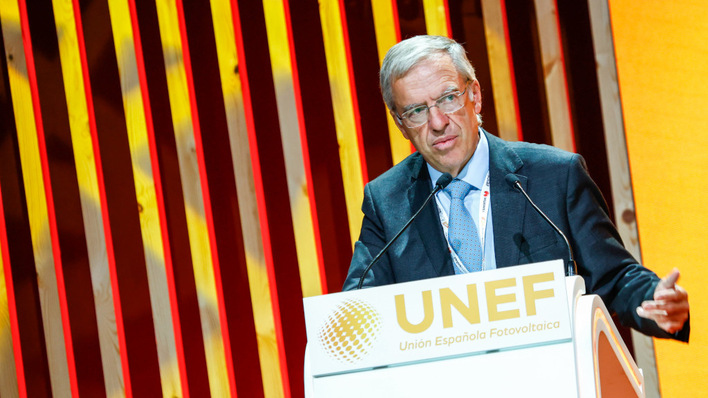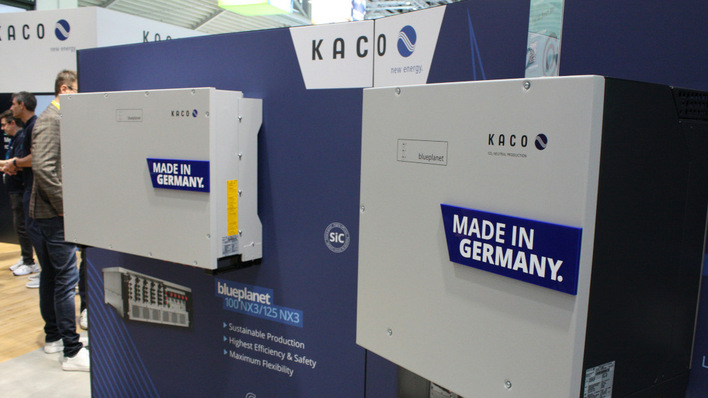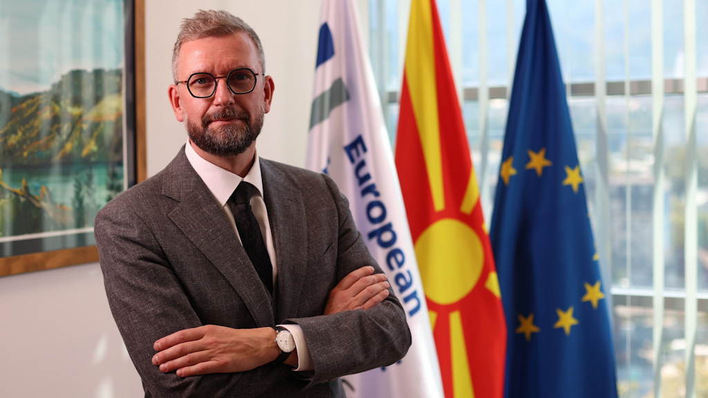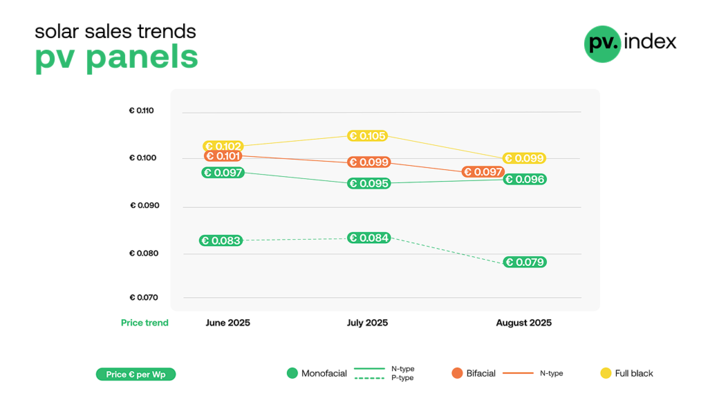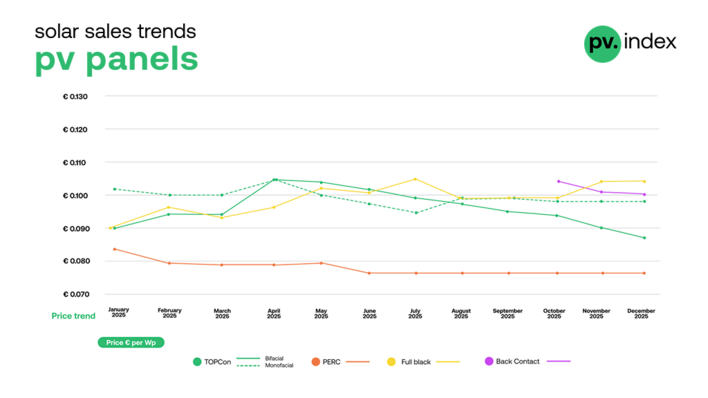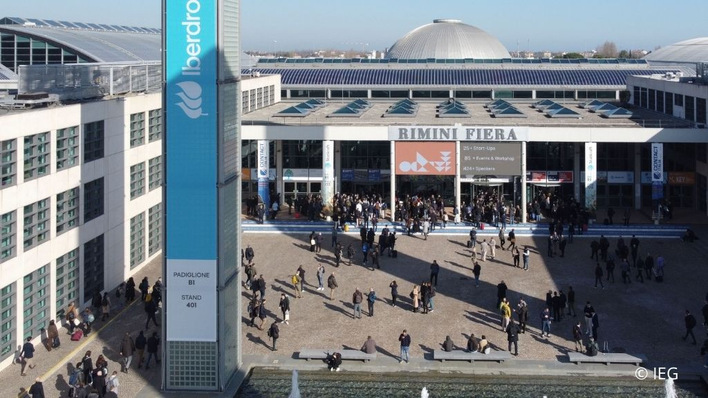SMA has been growing again and again for years. Which segments are doing well and where is there still room for improvement?
We published our Q3 figures at the beginning of November and are pleased that SMA's business model has once again confirmed its resilience. We were once again able to increase the SMA Group's turnover and earnings momentum in the third quarter of 2023. In addition to our most profitable segment, Home Solutions, both the Large-Scale PV Systems and Project Solutions segment and the Commercial and Industrial Solutions segment contributed to this. Both are developing very well operationally and their profitability has once again improved significantly.
What does this mean for your own projections?
Based on the good results, we are confirming our raised projection for 2023 and expect turnover of between 1,800 and 1,900 million euros and EBITDA (earnings before interest, taxes, depreciation and amortisation - editor's note) of between 285 and 325 million euros. In view of the ambitious expansion targets for renewable energies worldwide, we see enormous growth potential in the coming years, particularly in the area of large-scale solar power plants combined with storage solutions.
See also: Solarwatt: "The drop in prices is causing the industry in Europe problems"
All manufacturers will benefit from the favourable expansion forecasts. To what do you attribute the growth at SMA in particular?
There are two aspects that make SMA substantially different from other providers: We are a system and solution provider with a broad offering that includes not only the classic inverter, but also storage units and energy management for all sizes of solar systems, charging solutions for e-vehicles and electrolysers for the production of (green) hydrogen. We are also active in all three segments: Residential, Commercial and Industrial as well as in the power plant sector. We offer a wide range of products and solutions for all performance classes.
How do you expect the market to develop in the coming months?
According to our estimates, the photovoltaic market will grow by an average of 15 to 20 per cent annually over the next few years. In the commercial and industrial segments as well as in the power plant segment, this figure is actually over 20 per cent. Whether demand accelerates even more naturally also depends on how, for example, the acceleration in approvals or more planning security for photovoltaic investments for private households or companies develops. Because one thing is clear: we all want more energy independence and energy security.
Does that also mean more growth for SMA?
Our intention is to grow faster than the market in 2024. The prerequisites are in place, as photovoltaics continues to be in high demand in general. In the short term, in our view, demand and thus our incoming orders will slow down somewhat after the very strong increase in 2023, as distributors have stocked up well in recent months. However, this is a completely normal development that we have been forecasting for some time.
For a long time, the European production of power electronics, i.e. inverters, was relatively safe from competitors from the Far East. However, they are increasingly forcing their way onto the market. How is this competition developing, do you see parallels with the module market or are other factors playing a role here?
European inverter manufacturers have had very strong competition from the Far East for a long time. Unlike with solar modules, however, we are not yet seeing any signs of massive price reductions for inverters. However, experience shows that this may happen.
Why?
The fall in wholesale prices, particularly for crystalline modules, is due to stock levels following the pandemic and imports from Asia. In order to reduce overcapacity as quickly as possible and in a way that is gentle on the market, it is necessary to incentivise the demand side in this year's solar package and implement framework conditions for a resilient supply chain. Irrespective of this, other considerations also play a role for inverters: as they are the centrepiece of the photovoltaic system and all data flows converge here, customers are more sensitive with regard to data security and have greater trust in European manufacturers. Manufacturers that produce in Europe also have a clear lead over their competitors from the Far East when it comes to sustainability and durability.
The expansion of European production is currently being discussed. What kind of political support does the solar industry need for this?
Sustainability, longevity and data security have their price, which is why inverters manufactured in Europe cannot always withstand the price pressure from the Far East. Like the German Solar Industry Association, we are also in favour of promoting the additional costs of purchasing photovoltaic systems manufactured in Europe for a transitional period by means of resilience bonuses and corresponding regulations in the auctions under the EEG. Like other industry representatives, we at SMA continue to reject political measures such as import tariffs.
SMA is currently expanding its production capacities. Is this a reaction to the increased demand or is it also a strategy to stay ahead of the international competition - is production capacity important here?
We are indeed seeing an increase in demand, particularly in the area of systems for large-scale solar power plants. In addition to solar installations on houses and industrial plants, the ambitious targets for the expansion of renewable energies can only be achieved through the realisation of large-scale photovoltaic power plants. These can intelligently network photovoltaics with storage units and other sectors, such as the production of hydrogen, and integrate them into the overall system. They can also make a decisive contribution to grid stability. In order to realise this potential, we will double our production capacity in North Hesse from 21 gigawatts today to 40 gigawatts and manufacture system solutions for large-scale photovoltaic systems from 2025 and deliver them all over the world. In this way, we are making a decisive contribution to a future-proof energy supply here in the region. At the same time, we are creating attractive jobs here in the region and along the entire supply chain.
What role do business models such as self-consumption and the offer of complete systems play in the competition for power electronics?
The move away from fossil fuels is progressing worldwide and our customers are demanding comprehensive energy solutions that enable them to generate and utilise energy simply and easily. Against this background and in order to differentiate itself from the competition, SMA is successfully transforming itself from an inverter manufacturer to a system and solution provider.
Also interesting: Meyer Burger: "European module manufacturers are competitive"
How can we visualise this?
We offer combinations of hardware, software and services that enable users and installers to generate, store, intelligently monitor, control and utilise energy easily and efficiently. The topic of storage in particular is becoming increasingly important. In addition, our high standards for data security and holistic sustainability - short supply chains, circular economy, production in Germany - are important differentiators in international competition. (mfo)
The questions were asked by Sven Ullrich.


